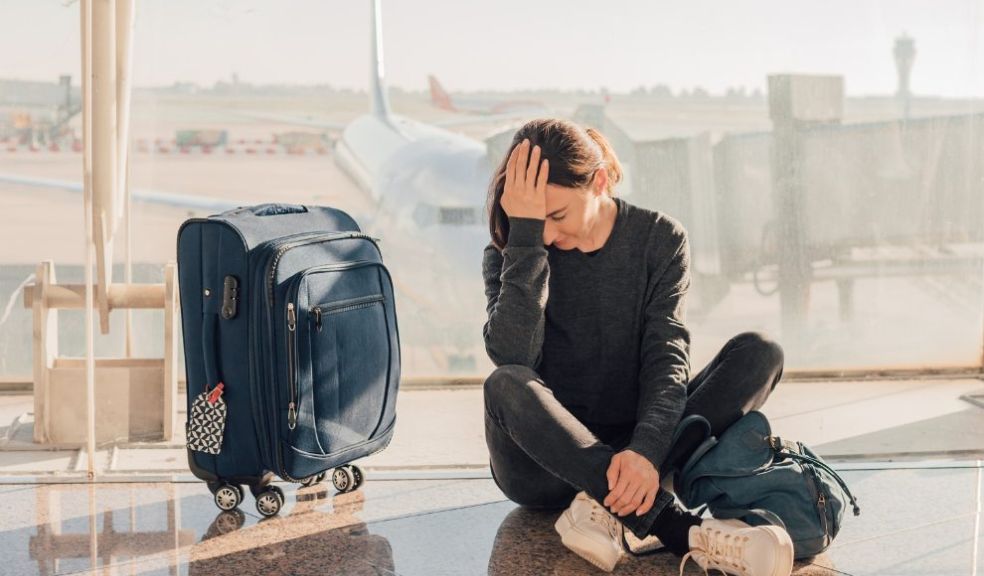
UK travel disruption: Guidance from Travel Insurance Provider World Nomads
Your Guide to Managing Air Travel Disruption
Following extensive air travel disruption due to technical glitches impacting Britain's National Air Traffic Service over the bank holiday weekend, global travel insurance provider, World Nomads, shares essential guidance for British travellers to help navigate ongoing travel disruption.
This guidance comes after strikes announced by air traffic control staff at Eurocontrol, responsible for managing Europe's skies, could trigger additional disruption over the next six months.
Furthermore, Wizz Air passengers are advised to brace for significant delays due to strike action by ground handling service employees.calling strives on 30 August, 6 and 13 September:
Jonathan Frankham, General Manager for the UK and Europe, offers the following travel tips:
1. "Find out the exact reason for the flight delay or cancellation;
If you think it could be more than just a short period of time, it's worth finding out some information which can help if you need to make a claim or claim compensation or a refund against the airline. Travellers need to know: how long the delay will be; and the reason for the delay.
2. Get it in writing;
Ask for evidence of why the flight was delayed. Travel insurance covers certain events, so you'll need to show it was one of these for any claim to be successful. Some of our travellers report service desks at the airport have given them proof on letterhead paper at the airport. If they can't, then get their customer service and complaints contact details and initiate contact on the spot.
3. Get a refund or get the carrier to reschedule your flight;
If you have incurred expenses because of the delay, your first port of call must be to seek help from the airline or travel provider that has not been able to provide services to you. Ask them to rebook or reaccommodate you or ask for compensation or a refund. And yes – if you decide to claim against your travel insurance policy for any costs you've incurred, then you'll need evidence you tried to get a refund from the airline first. If you don't have evidence, we'll probably ask you for it, which may delay any claim you make, so we suggest you approach your airline or travel provider first. You must accept any reasonable alternative options offered by the provider.
4. Keep all your documentation;
If you're still out of pocket after contacting your airline or travel provider for compensation, you can make a claim under your travel insurance. We will consider all the information available to make a decision on your claim. As part of that process, the more documentation you have that can show you've incurred expenses because of a covered event, the more easily and quickly we will be able to determine your claim.
5. Get in touch with your insurance provider if in doubt;
This information may help if things go wrong, and you want to make a claim. At World Nomads our Customer Service team is available weekdays from 9am to 5pm (UTC/UTC+1). In the event where urgent assistance is required, we offer a 24/7 Emergency Assistance helpline.
6. Read your policy wording closely;
All travel insurance plans are different, and cover will vary, depending on what's happened, your Country of Residence, the plan you choose and any options or upgrades you buy. Always make sure you read your Policy Wording for a full description of the coverage, terms, conditions and exclusions that apply to know what you're covered for"
Jonathan Frankham adds:
"The recent wave of cancellations, occurring during the peak travel period over the bank holiday weekend, is likely to have left many British travellers frustrated and disappointed. But with the right preparation and understanding of travel insurance coverage, UK travellers can minimise unnecessary stress and cost for the future.
"Travel insurance bought at the time of booking a trip offers coverage if a trip is cancelled or delayed before departure, but travellers need to check terms, conditions, limitations and exclusions in policy wording to ensure comprehensive protection.
"If you think your travel plans might be affected by cancellations, you should first contact your travel provider to check if you will be impacted and if you need to change your travel arrangements, they may provide assistance."
"Above all, it's important to buy insurance at the time of booking to provide protection against unforeseen events that might lead to trip cancellations or postponements.
"Our sales data shows that over a quarter (26%) of British travellers have purchased insurance on the day of departure or even after reaching their destination so far in 2023 – a practice we strongly caution against in light of ongoing travel disruption"















